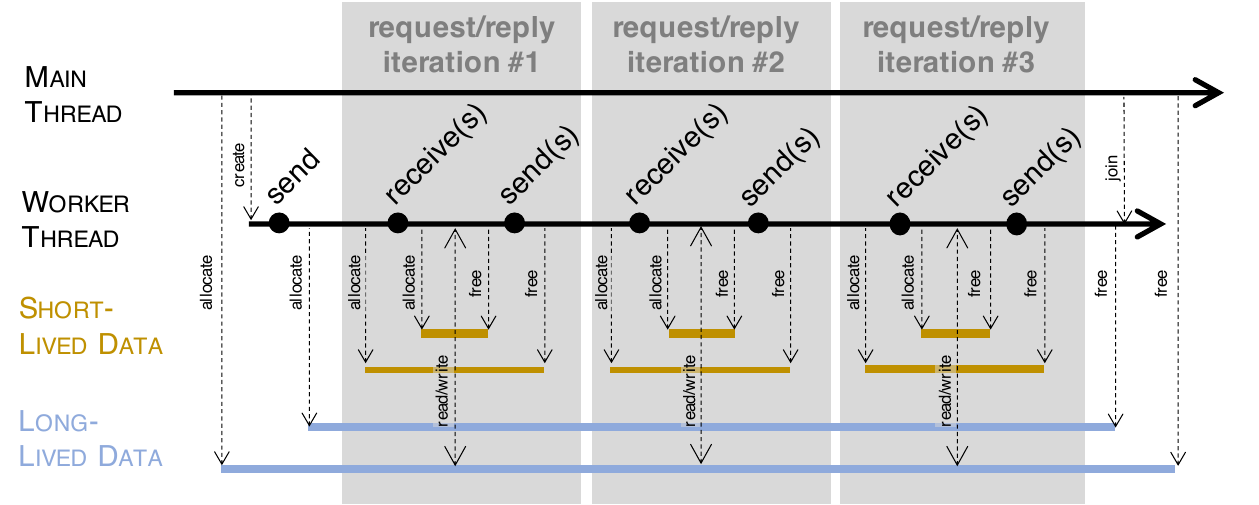StateAFL: Greybox Fuzzing for Stateful Network Servers
Fuzzing network servers is a technical challenge, since the behavior of the target server depends on its state over a sequence of multiple messages. Existing solutions are costly and difficult to use, as they rely on manually-customized artifacts such as protocol models, protocol parsers, and learning frameworks. The aim of this work is to develop a greybox fuzzer (StateaAFL) for network servers that only relies on lightweight analysis of the target program, with no manual customization, in a similar way to what the AFL fuzzer achieved for stateless programs. The proposed fuzzer instruments the target server at compile-time, to insert probes on memory allocations and network I/O operations. At run-time, it infers the current protocol state of the target server by taking snapshots of long-lived memory areas, and by applying a fuzzy hashing algorithm (Locality-Sensitive Hashing) to map memory contents to a unique state identifier. The fuzzer incrementally builds a protocol state machine for guiding fuzzing. We implemented and released StateaAFL as open-source software. As a basis for reproducible experimentation, we integrated StateaAFL with a large set of network servers for popular protocols, with no manual customization to accomodate for the protocol. The experimental results show that the fuzzer can be applied with no manual customization on a large set of network servers for popular protocols, and that it can achieve comparable, or even better code coverage and bug detection than customized fuzzing. Moreover, our qualitative analysis shows that states inferred from memory better reflect the server behavior than only using response codes from messages.
PDF Abstract